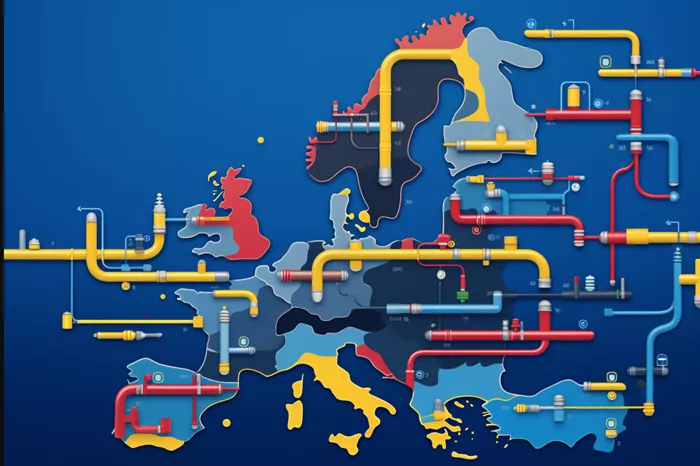Natural gas, an essential fuel and raw material, is a pivotal element in the global energy landscape. The pricing of this resource, however, is complex and influenced by numerous factors. This article explores the key players and dynamics involved in setting the price of natural gas, with a focus on understanding how markets and policies shape the cost of this critical energy source.
Understanding the Natural Gas Market
Supply and Demand
The price of natural gas is primarily determined by the fundamental economic principle of supply and demand. When the supply of natural gas exceeds demand, prices tend to fall. Conversely, when demand outpaces supply, prices generally rise. This balance is affected by several factors, including:
Production Levels: The quantity of natural gas extracted from reserves.
Consumption Patterns: The usage in residential, commercial, and industrial sectors.
Seasonal Variations: Changes in demand due to weather and temperature fluctuations.
Influence of Weather and Seasons
Natural gas demand is highly seasonal. In winter, demand spikes as homes and businesses increase heating usage. In summer, demand may rise due to increased electricity use for air conditioning. These seasonal shifts can cause significant price fluctuations.
Production and Reserves
Key Producing Countries
Major natural gas producers like the United States, Russia, and Qatar significantly influence global supply. These countries, endowed with substantial natural gas reserves, can adjust their production levels to impact market prices.
United States: The U.S. is one of the largest producers and has seen increased production due to technological advancements in extraction methods such as hydraulic fracturing.
Russia: As a leading exporter, Russia’s production and export policies significantly impact European and Asian markets.
Qatar: Known for its vast liquefied natural gas (LNG) exports, Qatar plays a vital role in global LNG pricing.
Technological Advances
Technological innovations, particularly in extraction and processing, have increased the efficiency and output of natural gas production. Developments in LNG technology have expanded global trade and influenced prices by making it easier to transport natural gas over long distances.
See also: 4 Reasons Why Natural Gas is Considered Clean Fuel
Market Players and Price Formation
Role of Natural Gas Hubs
Natural gas prices are often determined at trading hubs where transactions take place. The Henry Hub in the United States is a primary benchmark for natural gas pricing. Other important hubs include:
National Balancing Point (NBP): Located in the UK, influencing European prices.
Title Transfer Facility (TTF): The main hub in the Netherlands, impacting continental Europe.
Japan-Korea Marker (JKM): A key hub for Asian markets, reflecting regional demand and supply dynamics.
Price Discovery and Transparency
Trading at these hubs enables price discovery, where buyers and sellers negotiate prices based on current supply and demand. Transparent trading at these hubs helps stabilize the market and provides reliable price signals to participants.
Government and Regulatory Influence
Regulatory Bodies and Policies
Governments and regulatory bodies significantly influence natural gas prices through policies and regulations. This includes:
Production Quotas: Limits on production to control supply.
Export Restrictions: Policies that restrict the amount of natural gas that can be exported.
Environmental Regulations: Standards that impact production costs and processes.
Impact of Geopolitical Events
Geopolitical tensions, such as conflicts or diplomatic disputes, can disrupt natural gas supplies and affect prices. For example, sanctions on a major producer or exporter can reduce supply and drive up prices.
Global Dynamics and Price Interconnectivity
Impact of Global Markets
Interconnected Markets: The globalization of the natural gas market, particularly through the expansion of LNG trade, has led to increased price interconnectivity. Events in one region can quickly affect prices in another. For instance, a surge in Asian demand for LNG can influence prices in Europe and North America.
Currency Fluctuations: Natural gas is often traded in U.S. dollars. Thus, fluctuations in the dollar’s value can impact prices. A stronger dollar makes natural gas more expensive for countries using other currencies, potentially reducing demand and lowering prices.
Influence of Alternative Energy Sources
Renewable Energy and Competition: The rise of renewable energy sources, such as wind and solar power, affects natural gas prices. As more energy is generated from renewables, the demand for natural gas may decrease, exerting downward pressure on prices.
Nuclear Energy and Other Fossil Fuels: Competition from other energy sources, such as nuclear power and coal, also influences natural gas prices. If these alternatives become more cost-effective or are favored by policy changes, natural gas demand and prices may be affected.
Conclusion
The price of natural gas is determined by a complex interplay of market forces, government policies, technological advancements, and global dynamics. Understanding these factors is essential for stakeholders, including producers, consumers, and policymakers, to navigate the evolving energy landscape. As the world continues to grapple with the challenges of energy security, economic development, and environmental sustainability, the role of natural gas and its pricing mechanisms will remain a critical area of focus.
Related topic:
What Is Natural Gasoline? [Revealed]

